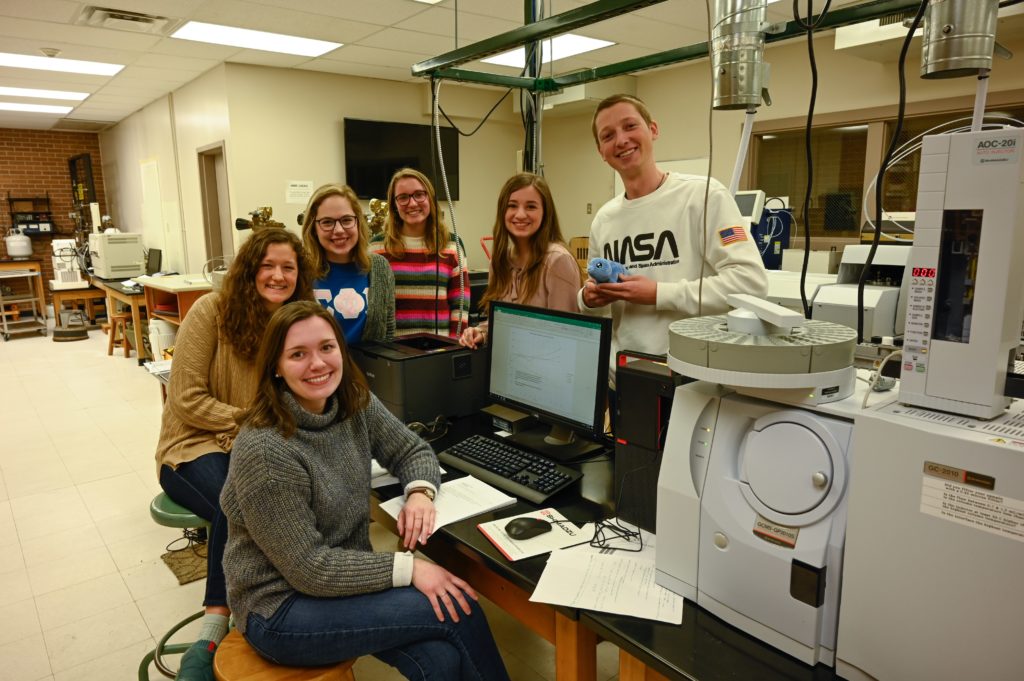
Feb. 14, 2020 |
A group of Harding University students has been selected to represent the state of Arkansas in Washington D.C. for the 30th anniversary of the Space Grant Consortium. The students selected, Abby Bankhead from Franklin, Tennessee, Sidney Brandon from Russellville, Arkansas, Hannah Smith from Searcy, Arkansas, Parker Pruitt from Beebe, Arkansas, Elizabeth Reed from Mount Pleasant, Texas, and faculty advisors Dr. Dennis Province and Dr. Cindy White, are part of the Harding University Space Research Team and are one of only 25 groups chosen from across the country to represent the consortium.
While in Washington D.C., the team will present their research results to lawmakers, senators and representatives, including six Arkansas congressmen, on Capitol Hill. The research is supported by a grant funded by NASA through the Arkansas Space Grant Consortium, which includes 17 four-year universities and colleges throughout Arkansas. Two of the HU Space Research Team members, Smith and Brandon, were also chosen to present at a session for selected students who will share their research with scientists at the Space Grant Annual Conference.
The team's research focuses on enhancing the current system of wastewater treatment in space with a reactive oxygen species generator that will break down complex molecules and kill microbes using a combination of UV light and titanium dioxide. This process, known as photocatalysis, will help to clean and disinfect the air and water aboard the International Space Station so that it can be recycled.
Harding’s involvement with NASA began in the 1960’s with grant-funded research related to astronaut physical fitness of benefit to the first moon launch. The University maintains strong ties to America’s space program today through continued scientific and technology research and its membership in the ASGC.
The primary goal of the ASGC is to educate and familiarize faculty, undergraduate and graduate students with aerospace fundamentals, NASA’s broad research programs, and with other opportunities to enter aerospace and related industries. Following in NASA’s footsteps, they conduct programs to familiarize and motivate students with the STEM-related courses needed to enter aerospace activities at colleges and universities and to prepare them to enter white-collar and blue-collar professions in high-tech industries.